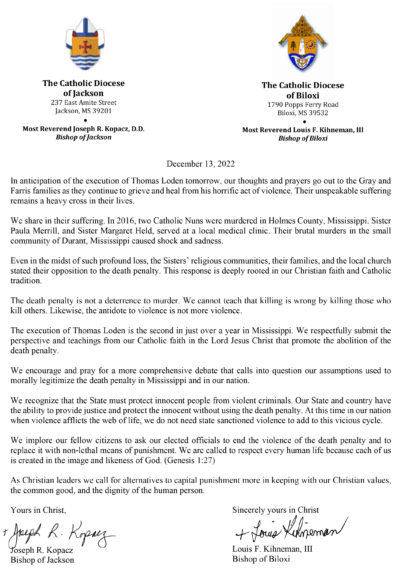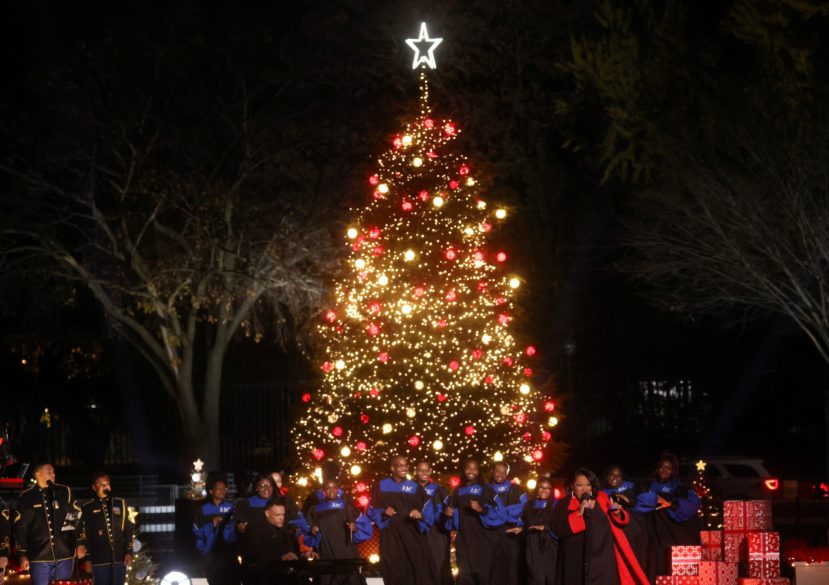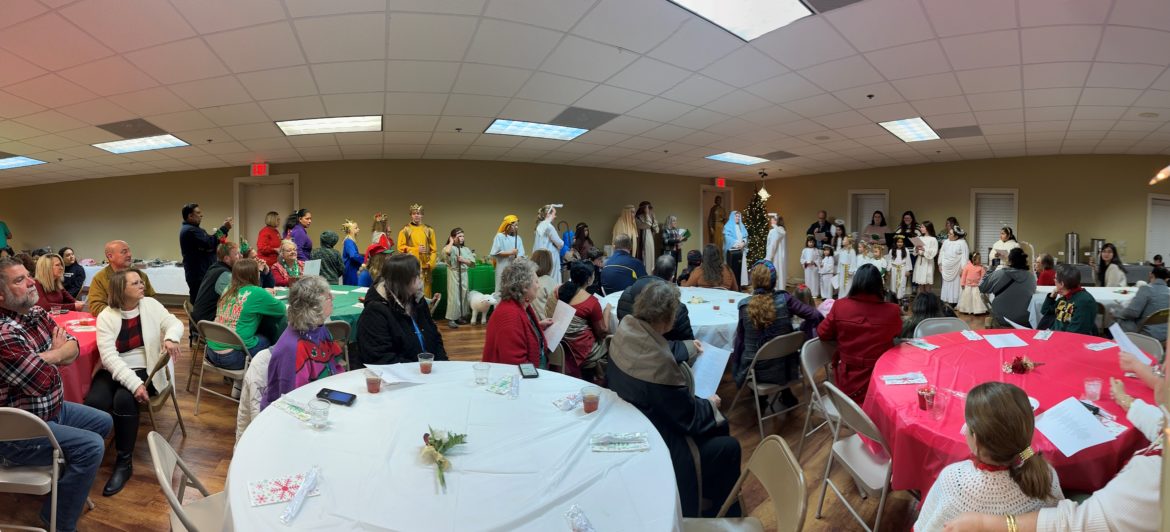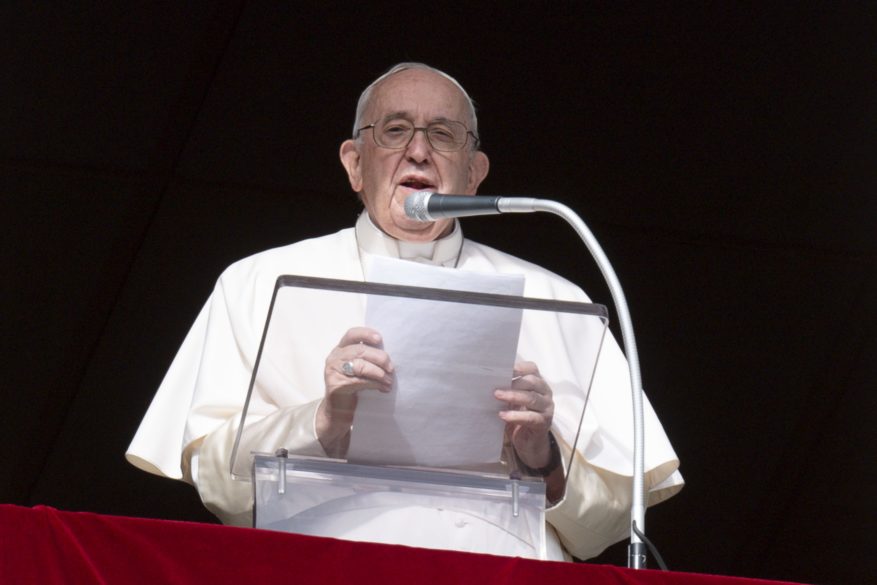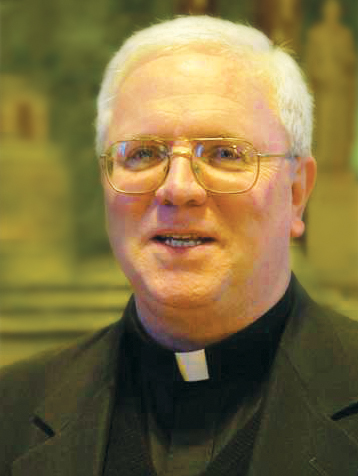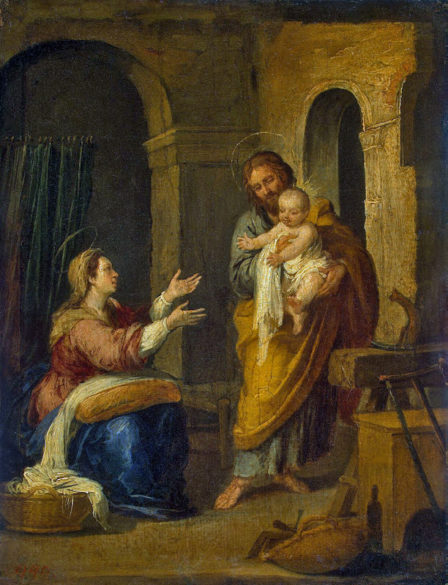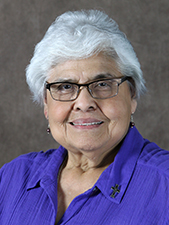From the Archives
By Mary Woodward
JACKSON – For those of you who knew Bishop William Houck, you know he was a larger-than-life persona. His booming voice and laughter were recognizable before he ever entered the room. He was a great man of the church and never missed a chance to evangelize others through word and deed.
Bishop Houck clung to traditions and for every holiday he had one. We always knew which holidays were spent with whom and what time he would head to Mobile for family celebrations. He adored his family, and they looked forward to his visits with great joy.
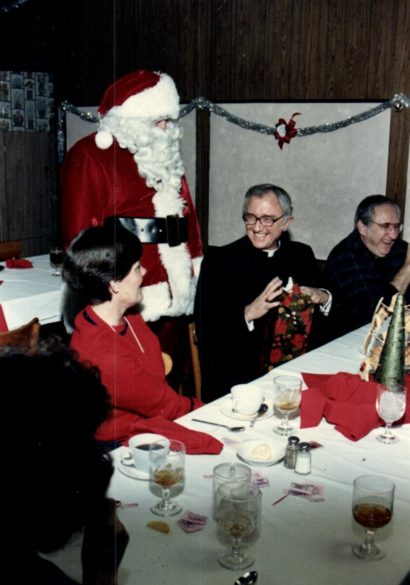
At Christmas, Bishop Houck loved for his residence to be decorated with lights, angels, poinsettias, wreaths and any Christmas merriment that could be found in his vast collection. He had an outdoor nativity set given to him by Virginia McCaskey, owner of the Chicago Bears. For this festive ensemble, he had a local craftsman build a stable that could be disassembled and stored in the garage after Epiphany. It was my task to meet the craftsman each year to retrieve the stable from the garage rafters, set out the holy family, and plug up the lights; then meet him again to take it all down while Bishop Houck was on the annual region V bishops’ retreat.
Another annual tradition was getting the live Christmas tree for his house. Bishop Houck did not like artificial trees. I still remember the look on his face when someone suggested he get one. Yikes for that person!
Jim McCraw, Knight of Columbus extraordinaire, was the man with the truck who was called upon each year to go with Bishop Houck to get the perfect tree. Keeping with his tradition, Bishop liked to wait until closer to Christmas to get the tree. I remember one year he waited a little too late and the lot where they normally got the tree had been abandoned. Fortunately, the trees that didn’t sell were left behind as well, so that year the evergreen was a little dry but gratis.
McCraw was reminiscing about tree shopping a few weeks ago and sent me the following account of the yuletide expedition.
“Right about now I’d be getting a call from the bishop wanting to go tree shopping. I looked forward to it every year and always enjoyed his stories about his dad taking him to get their tree as a child. After getting it in the house, his mother would make him go outside and look through the window to make sure it was straight.
“Bishop would look all the trees over until he found the perfect one. You knew when he found it because he’d explode in energy: ‘THIS IS IT!’ He talked to everyone – a true man of the people.
“After getting the tree inside and in place my final task was to put the bowl of water under it. I’d offer to do the lights, but he always said: ‘No Jim, I leave all that to Mary Woodward.’ (Author’s note: I would have been fine if Jim had put the lights on the tree, but it was Bishop’s tradition, and I was blessed to be a part of it.)
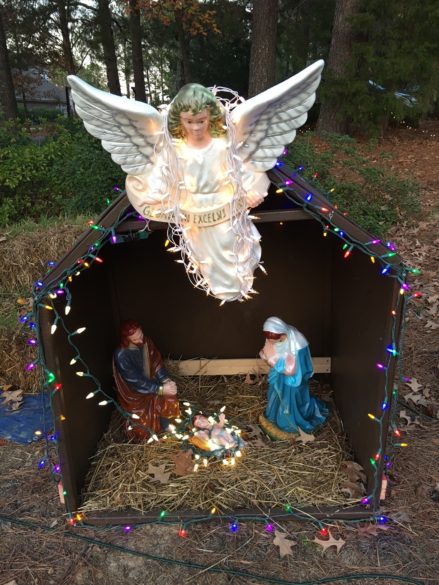
“One of our early trips had us looking for Christmas tree lots in northeast Jackson. We ended up driving past the Gray-Lewis house with the kids playing outside. They waved so he wanted to stop. “Vic and Geri had a neighbor who was in her final hours, and they asked if Bishop would give her a blessing. Out he went … they told him she didn’t speak English. ‘Fine, Fine’ he said in his booming voice.
“As he got back in the truck, in his non-clerical tree-shopping attire, the youngest Gray-Lewis child asked: ‘Are you really the bishop?’ You can imagine his laughter. Made his day.
“I asked him about the language barrier, and he said: ‘It’s not what you say, it’s that you’re there, Jim.’ Great man. I do miss him.”
I miss him too. He was an imparter of great wisdom and a wonderful mentor to so many. The memories of his traditions will live on in my heart, Jim’s heart, and especially the hearts of his family.
Whether you open presents on Christmas Eve or Christmas Day; whether you go to the family Mass at 4:30 p.m., Midnight Mass, or Mass on Christmas Day; whether you eat turkey, ham or tofu; may you all have a very Merry Christmas where you joyfully celebrate your own cherished traditions and maybe create a few new ones. Take time to remember those who have gone on to the Lord (as Bishop Houck would say) and thank God for placing them in your path.
Christus natus est!

